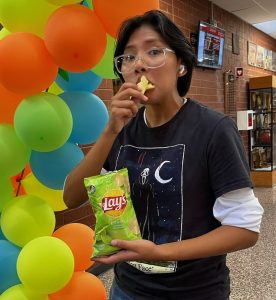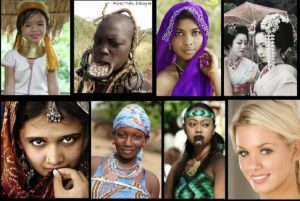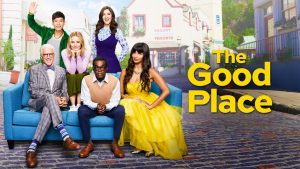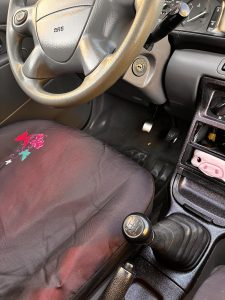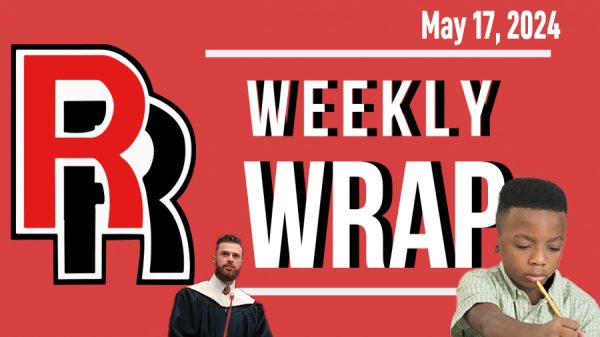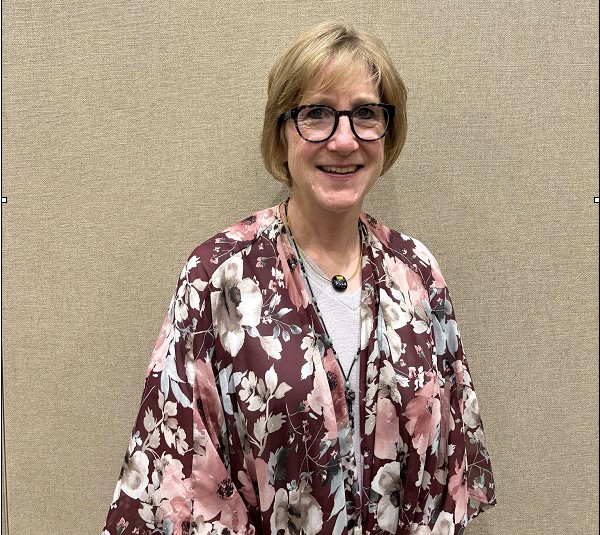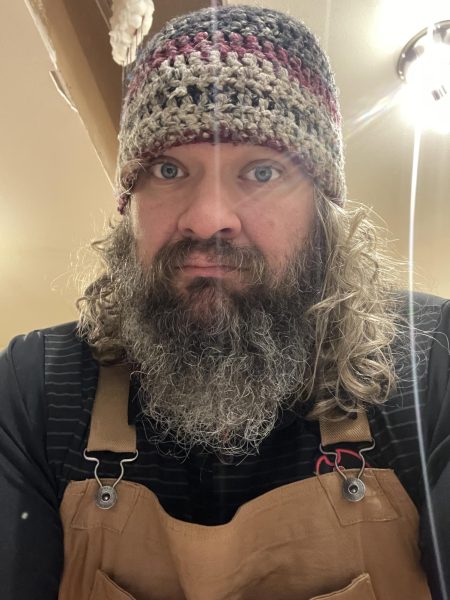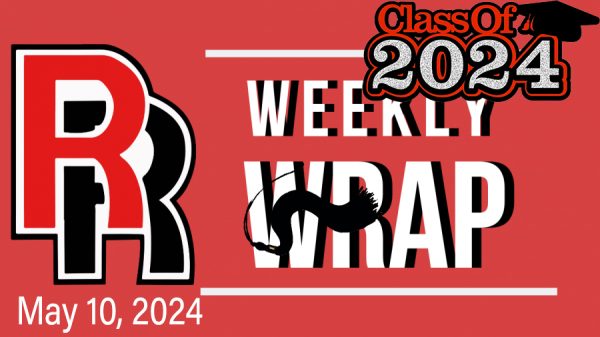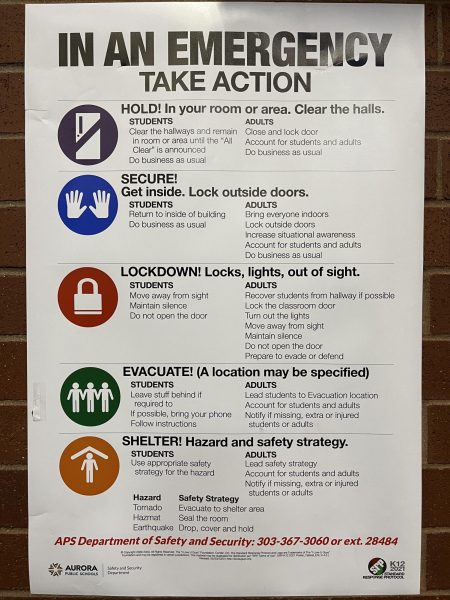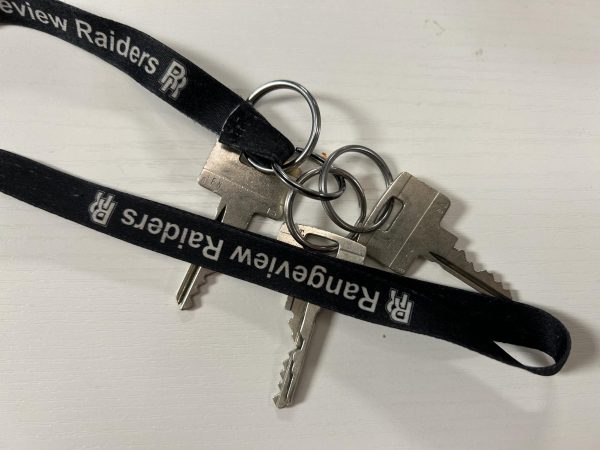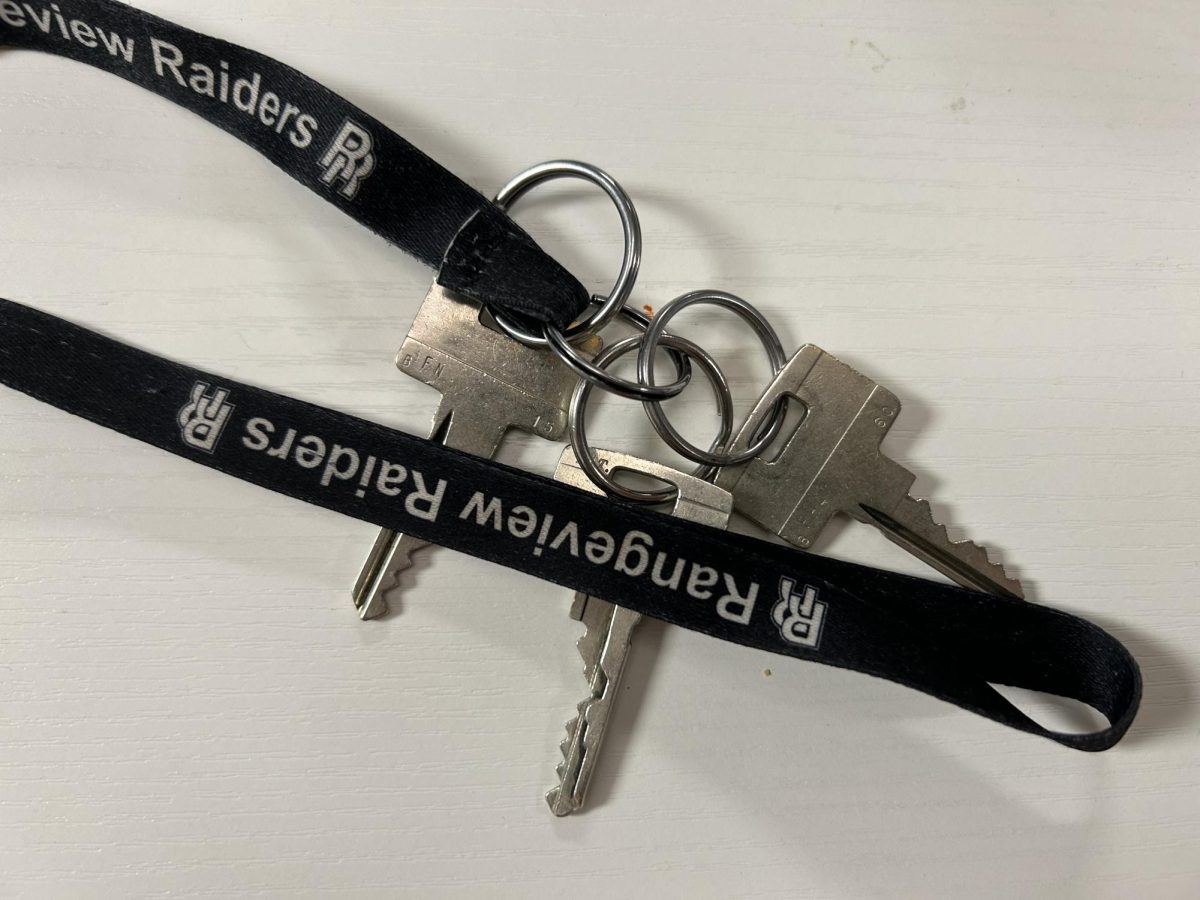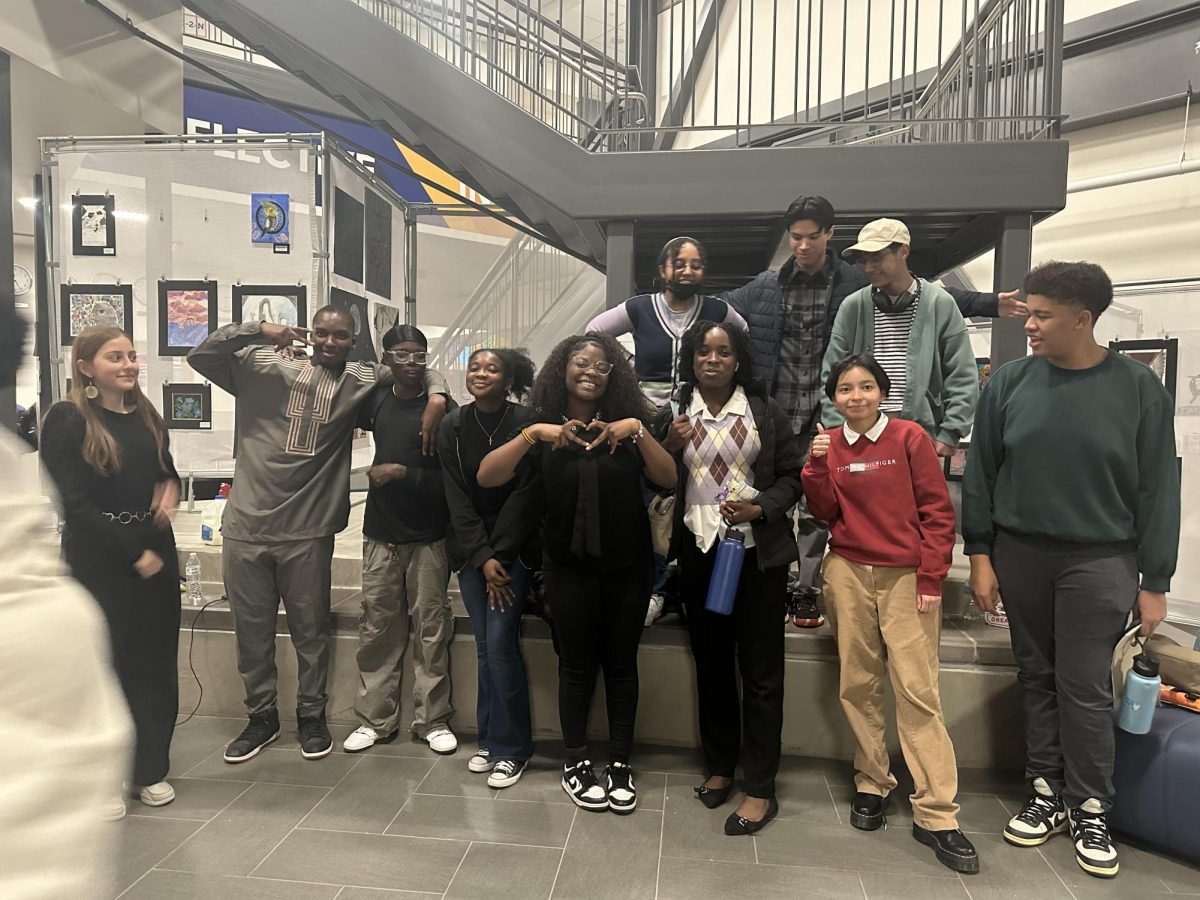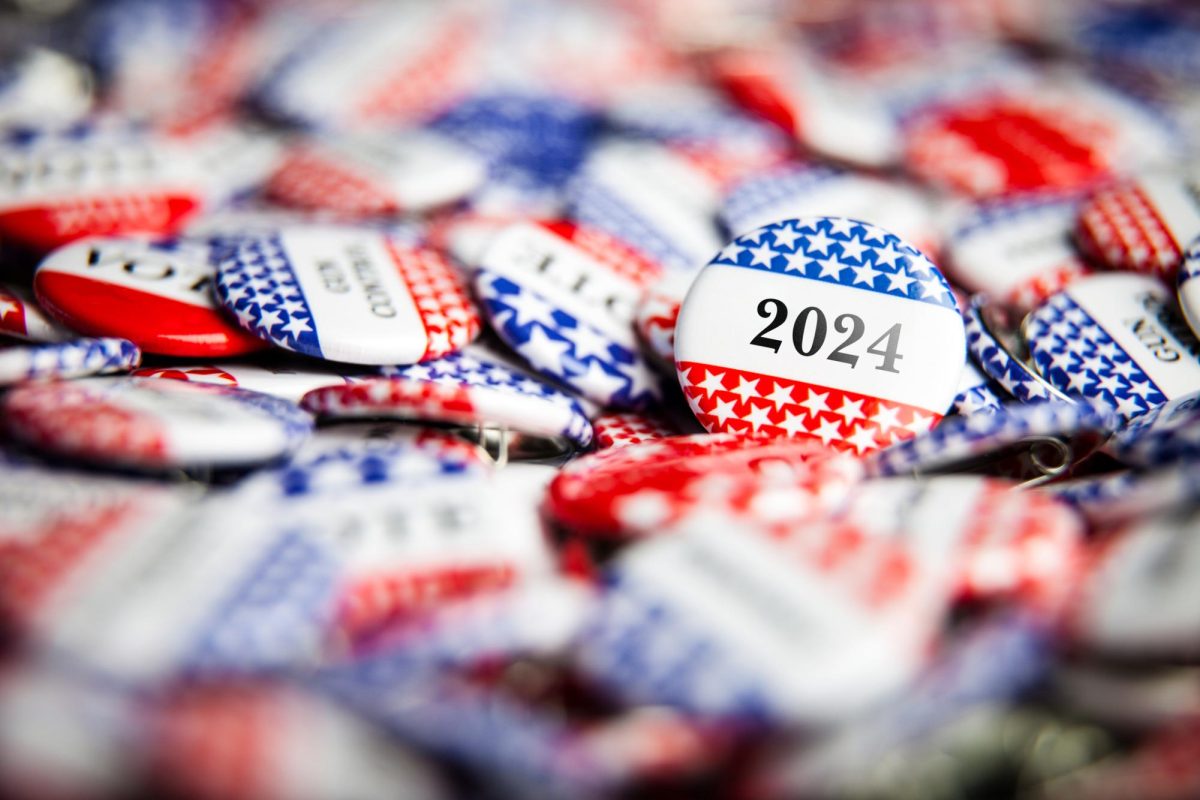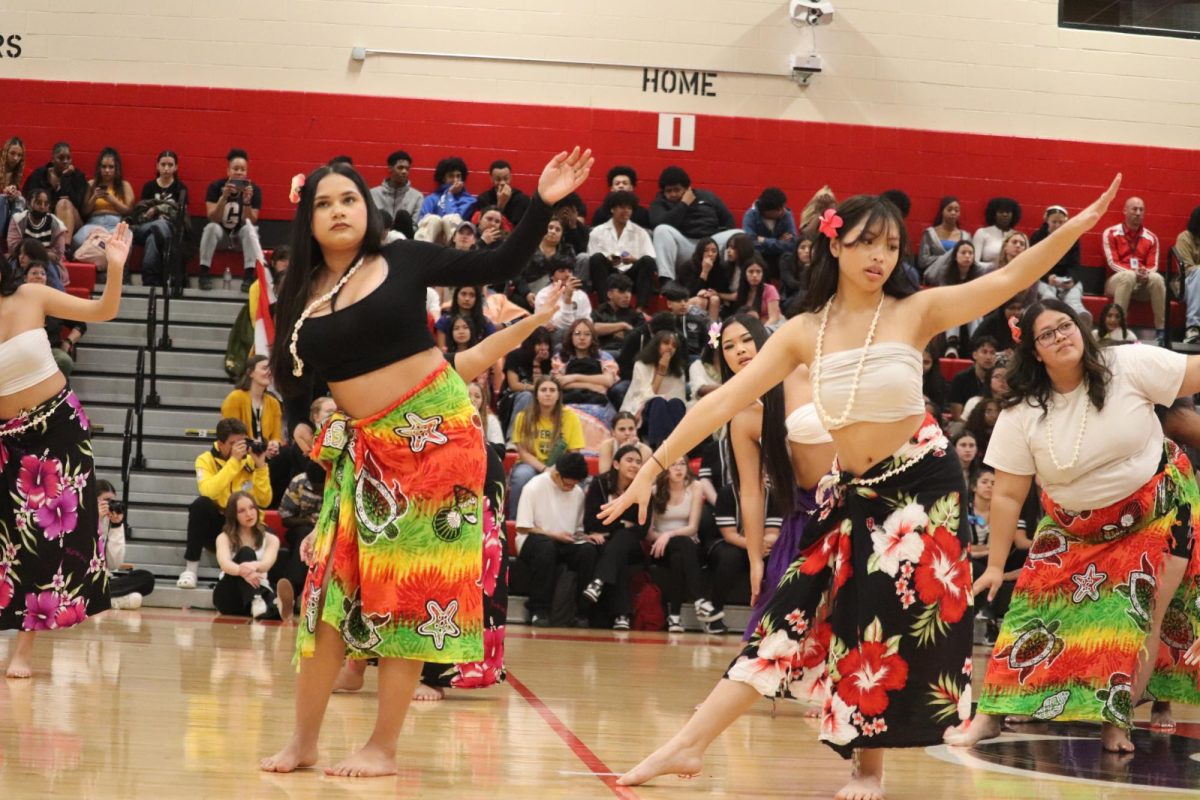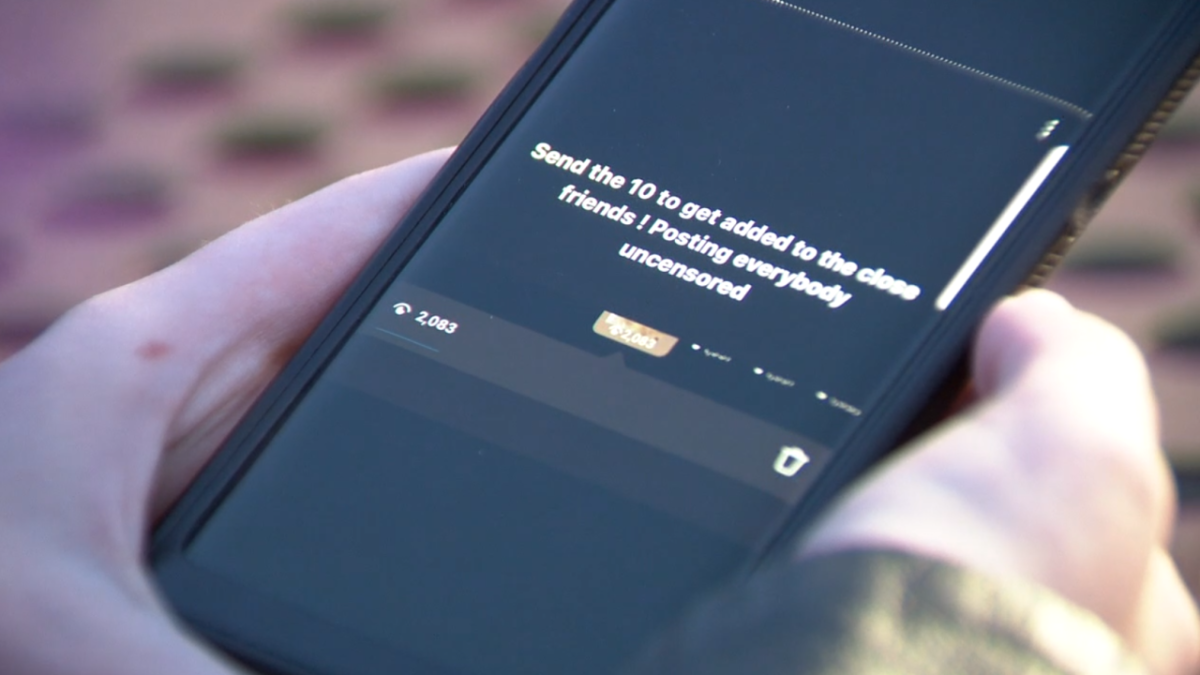
Feature Photo By: Lily Eberly- A student’s eyes stare into the camera. The idea is that no one can know who someone is based just on what they look like.
By: Lily Eberly, Review Staff
As of May 2018, the percentage of those who identify as LGBTQ+ has gone up to 4.5%–from 3.5% in 2012, according to recent studies.
In 2019, people come out to their friends, family, colleagues, etc. However, not everyone knows what these people go through when they come out, the effects on them afterwards, or their opinions on religion.
Since the US legislated same sex marriage as legal, the suicide rate among teenagers of the community dropped by 7% by 2017.
“This subject is, kind of, taboo. It doesn’t need to be,” says Mr. Wells, “I think in the twenty-first century we need to be way more supportive of people and their individuality.”
In order to give insight on what the LGBTQ+ community faces, some students — who are in the community — have given their stories to The Review. Here they are:

Editor’s Note: One student, “Tyler”, has been granted anonymity by The Review. They asked for this because not all of their family members are comfortable with their story being told.
Jared Pujols, RHS junior
“I personally have come out; I’ve kind of been open ever since I first realized that I had an attraction towards guys. The first reaction I can remember would be my old best friend. He was kind of shocked, but for the most part, he didn’t really judge me. I’ve always been around people who are accepting, but at the same time there’s always been people who aren’t accepting. I identify as gay, and I’m pretty sure where I stand…I’m sure about my feelings; I know how I feel towards guys.
“I feel like we are a community because of the people who do discriminate against gays and judge and make people feel like they’re less important because of who they are — it’s not a choice to be gay, or bi, or lesbian — it’s who you are, just like it’s not a choice to be straight. I feel like everyone should be as one, there shouldn’t be two separate communities, that there should be one because everyone should be accepting of one another. But in this society, that’s not how it works.
“Wearing makeup in general to school is hard and that is the only thing that I can say I struggle with as being who I am because people see makeup not only as just being gay: they see it as only females can wear makeup. Makeup is a form of self expression, it’s a form of art just like painting…guys can do makeup and girls can do makeup…People still discriminate against me for it, and they use labels like ‘gay’ and ‘faggot’ for me because I do makeup.
“I feel like regardless of all the discrimination and hate that’s given, I feel like people should come out. And that’s coming from me who hasn’t gone through some of the (crap) that other people have. I’ve never actually been attacked and physically harmed; I’ve just had people talk crap and put me down, which yeah it sucks, but at the same time I don’t want to hide who I am because not only is that satisfying them and making them happier about the fact that I’m hiding who I am, but it feels good to show who I truly am without having to hide myself. Coming out has affected me positively because its allowed me to really show who I am. I’d rather be out there getting made fun of for who I am rather than hiding it inside knowing that I have something I wanna say, but I can’t — because of fear.
“When people bring religion to it, and they’re like, ‘Oh you’re going to hell because you’re gay.’ I’m like bull(crap)…If there is a god and devil, I don’t think they go off of your sexual orientation; I think they go off of your heart: if you’re good you go to heaven, if you’re evil you go to hell. That’s something that isn’t affected by who you are.”
Glenda Chiang, RHS sophomore
“I identify as an asexual lesbian. But who knows if that will change; figuring yourself out is hard. Coming out is a scary thing. I’m still closeted to the rest of my friends and pretty much all my family. I’m waiting till I have a stable life (financially), and my own place before I consider seriously coming out.”
“As for religious views, I am Buddhist, though my practices, I rarely do them because I have ideals that aren’t strictly Buddhist. I just live to live.”

Mercedes Lopez, RHS sophomore
“I surround myself with supportive people, so they all accept it, but one instance happened with my parents. I was force outed to them and all I can remember is my stepdad calling me a dyke — and lots of tears — and continually being told that it’s a phase. This is when I told them I was bi too; I haven’t told them I’m a lesbian yet.
“The LGBTQ+ community can be really toxic sometimes with shoving their identity and sexuality down people’s throats and being super over the top, but the people I’m around aren’t really like that. So my surrounding community is great. People outside of the community can be toxic as well, but not in the same ways. Recently I saw people trying to add ‘straight’ to the LGBT community (acronym) and I really didn’t like that. That’s our safe space. Other than that, as long as people outside the community are tolerant, then they’re all good.
“I’ve never really had any bad experiences, but I do worry about people in church finding out. I have to go to church a couple times a week and I like to keep my sexuality and relationships on the down low because I’m afraid of judgment, and I’m uncomfortable there anyways…”
Maggie Pettes, RHS sophomore
“My grandma kinda ignored me when I first told her and then refused to accept that I was bi, so that was tough. But now she’s really accepting. I identify as bisexual but I lean more towards girls. I feel very protective over the community and that’s kinda odd to me; I guess it’s just that we all go through so much because of who we are and who we love.
“I definitely don’t have a problem with anyone outside of the community other than homophobes and transphobes. I kinda worry about making gay jokes because everyone immediately assumes I’m a lesbian because of it.
“I feel like coming out is apart of being in the LGBTQ+ community while unfortunate it can be very momentous. My coming out made me nervous at first but then I just accepted myself and didn’t let anyone’s thoughts about who I was, bother me.”

Kat White, RHS sophomore:
“I’ve been out for a few years now, and all those I’ve been out to have been okay with it.
“The community as a whole is cool–there are still race and sexuality issues inside of it, which is just stupid and gross. I am worried about going some places because I do have pins on my backpack and there are vile human beings at this school — and anywhere for that matter.”
Tyler (This is not the student’s real name):
“Honestly, it’s very difficult to come out because it’s like you have a bunch of these life long friends and your family, and it’s like you don’t want to tell them one certain thing. You just want to hold it in, but then holding it in also makes it super awkward; you feel like sometimes exploding and letting it all out, but you never know what people’s reactions are going to be. It’s difficult. When you do come out, it’ll feel so much better unless you have those awful reactions — and I was lucky to not have those.”
This community — like any other community — has had struggles and triumphs. All the people in the LGBTQ+ community want their views taken into consideration. Though there may be more supporters now than from 20 years ago, many RHS students struggle mightily with their sexual orientation. If you would like to share your experience or views, e-mail The Review at [email protected].
